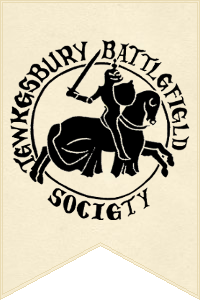April 11th 1471: Yorkist London
Edward and his followers entered London. There was no resistance at all. Attempts to organise it by Sir Thomas Cooke were probably negated by the sight of King Henry being paraded around in a far from regal show. The city council had reasoned that as the citizens were not sufficiently well versed in arms to withstand so large a force, no attempt should be made to resist him. Warkworth’s Chronicle went as far as to suggest that Christopher Urswick, Recorder of London, commanded that all the men who were in arms protecting Henry should go to dinner, and whilst they were away Edward was let in.
Phillip de Comyns, the Burgundian diplomat, had a different explanation. He said that Edward’s passage into London was on account of three things; the number of Yorkists in sanctuary in the city, the numerous debts which he owed to merchants who saw this as a way of receiving payment and that the ‘rich citizens' wives with whom he had formerly intrigued, forced their husbands and relations to declare themselves on his side’.
Edward’s army swept into the city and made for St Pauls, where he gave thanks, and recaptured poor King Henry. Edward’s sister, Margaret of Burgundy, described the scene, saying that the two kings shook hands and Henry, somewhat naively, said “My cousin of York, you are very welcome. I know that in your hands my life will not be in danger. Henry was confined to the Tower, as was Archbishop Neville, who had surrendered himself.
Edward’s thoughts turned to his family. He went next to Westminster to meet his wife and the son born whilst he was away. That night was spent in comfort with his family in Baynard’s Castle, a riverside palace close to St Paul’s.
For Warwick, the bad news just kept coming. Today, news arrived from France that King Louis had signed a truce with the Duke of Burgundy, something he’d sworn not to do. That put paid to Warwick’s other aspiration, as a European ruler. He wrote a furious letter to Louis that evening, a letter which would have ended their friendship.

